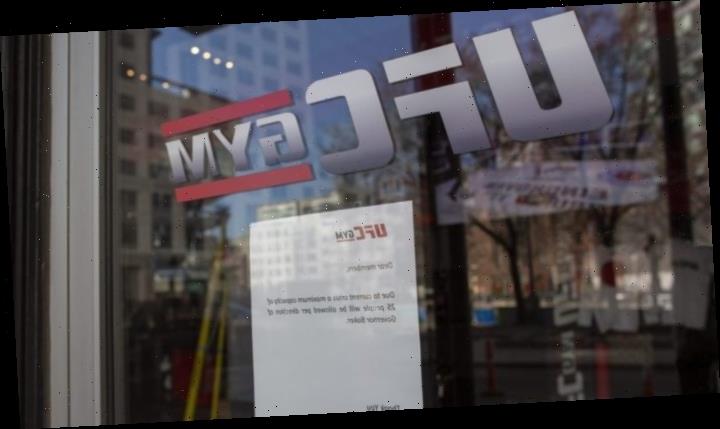Endeavor, Live Nation Entertainment and Sinclair Broadcast Group are among the prominent industry firms facing new financial pressure because of their high debt loads and vulnerability from the widespread shutdown of sports leagues, concerts and other live events.
The timing of Sinclair Broadcast Group’s $9.6 billion acquisition of 21 regional sports networks from Disney could not have been worse given the unforeseen sports blackout.
Moody’s Investors Service, one of the three major credit rating agencies, flagged the problem from sports-related shutdowns in a research note issued Tuesday. An extended shutdown could be brutal for companies that don’t have diversified operations.
“Major U.S. media (companies) will delay or lose valuable programming as a result — particularly playoffs, finals and tournaments — programming that is the most avidly watched on TV and draws the highest ad rates. The loss will be credit negative for a long list of U.S. media companies,” Moody’s analyst Neil Begley wrote. “Live sports is one of the few programing categories that still garners large, predictable, nontime shiftable live TV audiences and the effect on advertising revenue and engagement will be significant.”
Endeavor, the parent company of UFC, WME and IMG, is poised for a big hit as so much of its business revolves around sports tournaments, fashion shows, food and wine festivals and other types of gatherings that have been canceled or postponed. The sudden loss of revenue from shuttered events could make it hard for Endeavor to service its short- and long-term debt commitments as well as those of UFC, which Endeavor acquired for $4 billion in 2016.
As of August, Endeavor had long-term debt of $4.6 billion. In January, Endeavor acquired hospitality firm On Location Experiences for $660 million, as estimated by Bloomberg News. Endeavor had hoped to issue a public offering last September that would have helped ease the company’s debt burden, but it was forced to pull that offering in the face of lukewarm reaction and the chill in the IPO market for firms without strong underlying earnings.
S&P Global predicts that Endeavor’s revenue from events could drop this year by “mid-teens” percentage and that its debt will reach a ratio of seven times its earnings before interest, taxes, depreciation and amortization. That’s a high level that prompted S&P to put the company on its CreditWatch. A downgrade in Endeavor credit rating would make it costlier to refinance its existing debt and harder for the company to pursue more acquisitions.
Given the fast-moving nature of the coronavirus crisis, S&P Global said it would take some time to determine whether Endeavor’s leverage ratio will climb higher “or if we lose confidence (Endeavor and UFC) can maintain adequate near-term liquidity.”
S&P issued the same warning for Live Nation Entertainment, the nation’s leading event promotion firm. As of the fourth quarter, Live Nation had about $3.3 billion in long-term debt. The company could be in for a credit downgrade if revenue tanks and its leverage ratio spikes beyond the five times EBITDA ratio.
“While the extent and duration of the impact on the live events industry are uncertain, we believe Live Nation Entertainment Inc.’s operating performance could be hurt by the growing number of postponed events, lower-than-expected attendance, or any future cancellations,” S&P Global said. “We could lower the rating if we believe the COVID-19 outbreak will be prolonged or worsen live event attendance through additional postponements or cancellations, or if Live Nation cannot successfully manage its cost structure, keeping leverage above 5x.”
Sinclair’s biggest problem is the lack of readily available replacement programming for its regional sports networks. At the end of 2019, Sinclair had $11.1 billion in total debt.
“Standalone RSNs, along with Leagues and teams, face the most risk,” Moody’s Begley wrote. “This is because they cannot easily replace the live game programing, nor lost revenue.”
The whiplash from the coronavirus-related upheaval to virtually every aspect of public life will be significant for all media companies. But smaller companies with high levels of red ink will naturally face more scrutiny in the marketplace.
“It comes down to liquidity,” Begley told Variety. For companies with less-than-stellar debt ratings, the key question is, ‘Do they have cash? Will they be in a negative cash flow position? How much capacity do they have on revolving credit lines.’ If they fail those tests, we will have to take a rating action to reflect the higher risk in this environment,” Begley said.
(Pictured: A UFC Gym facility in Boston is shuttered due to the city’s ban on gatherings of more than 25 people.)
Source: Read Full Article
